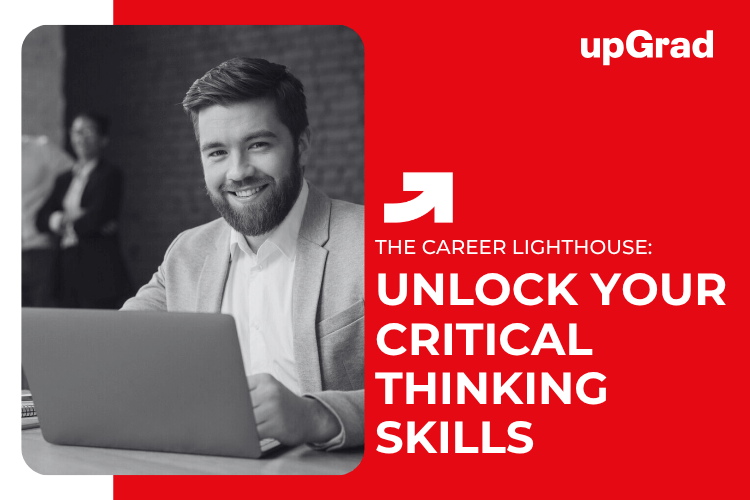Critical thinking skills empower us to analyze information objectively, challenge assumptions, overcome biases and make well-reasoned decisions. However, we often face barriers that hinder our critical thinking abilities. By identifying these barriers and developing key strategies to overcome them, we can unlock our full potential for constructive evaluation, insightful questioning, and skilful problem-solving. This guide outlines practical tips to recognize assumptions, evaluate evidence impartially, ask critical thinking questions and boost your critical thinking capacities to achieve success.
Evaluate Information Objectively
To think critically, we must examine information, claims and assumptions objectively. However, we often face barriers like:
- Confirmation bias: Favoring information that aligns with our existing beliefs
- Assumptions and perceptions: Making judgments without sufficient evidence
- Emotions: Allowing feelings to cloud logical reasoning
Act upon it:
- Identify these barriers within yourself through self-reflection
- Question your assumptions and determine if they are fact-based
- Analyze the factual accuracy of claims before accepting them
- Evaluate perspectives that contradict your own beliefs
Objectively assessing information requires awareness of internal biases that can hinder critical thinking. Once recognized, these biases can be overcome.
Ask Critical Thinking Questions
Asking the right critical thinking questions facilitates analyzing situations clearly and making well-reasoned choices. Practical critical thinking questions evaluate:
- Accuracy: Is this information factually correct?
- Relevance: Does this relate to the issue/decision?
- Implications: What conclusions can be drawn?
We often need more curiosity or awareness when questioning information effectively.
- Cultivate curiosity to explore issues more deeply
- Identify gaps in information and ask clarifying questions
- Consider multiple perspectives when analyzing implications
- Review if your questions are relevant before reaching conclusions
Asking and probing critical thinking questions helps overcome superficial thinking and hasty decision-making.

Solve Problems Skillfully
Problem-solving, barriers like tunnel vision, reliance on familiar solutions and lack of creativity often limit our critical thinking. Useful strategies to overcome these include:
- Defining the problem accurately and completely
- Evaluating multiple solution options objectively
- Considering unconventional approaches
- Implementing solutions skillfully
To prevent this, you can:
- Avoid defining problems superficially or incorrectly
- Prevent tunnel vision by developing solutions creatively
- Evaluate familiar and innovative solutions impartially
- Plan and implement preferred solution effectively
Enhancing problem definition, expanding perspective and evaluating choices require advanced critical thinking to implement skilful solutions.
Why is Critical Thinking Important?
Critical thinking empowers us to achieve clarity in reasoning, overcome biases in judgment and make effective decisions. It enables recognizing assumptions, impartially analyzing facts and skillfully solving problems. Therefore, critical thinking skills are precious for success in professional and personal contexts.
Honing your critical thinking through ongoing practice can help you reach reasoned conclusions confidently. This builds credibility and the capability to make wise choices that yield productive outcomes.
Conclusion
Barriers like biases, assumptions, and a tendency for tunnel vision often impede our capacity for constructive critical thinking. By developing self-awareness, objective analysis, insightful questioning and unconventional problem-solving, we can systematically overcome these barriers and unlock our highest potential.
Consistently applying such strategies paves the path to success, as critical thinking breeds clarity, impartiality, and skillfulness—invaluable skills that enable sound decision-making.
FAQs
1. What are some common barriers to critical thinking?
A1: Common barriers include biases, preconceived notions, tunnel vision, conformity, assumptions, perceptions, emotions and a tendency to avoid questioning the status quo.
2. How can asking better questions improve critical thinking?
A2: Asking incisive questions that evaluate information’s accuracy, relevance, and implications fosters objective analysis from multiple perspectives. This expands understanding and enables reasoned conclusions.
3. Why is it essential to define problems accurately in problem-solving?
A3: Precisely defining the root cause and full scope of a problem clarifies the need and objectives for solutions. This prevents superficial solutions that only address surface-level symptoms.
4. How can we evaluate information more objectively?
A4: Techniques like consciously questioning your assumptions, impartially analyzing contradictory perspectives, relying on factual evidence and avoiding emotional reasoning help evaluate information objectively.
5. What are the benefits of critical thinking in personal life?
A5: Critical thinking enables wise choices about relationships, finances, health, career, and personal growth by objectively evaluating options, questioning assumptions, and determining optimal solutions.
6. Why do critical thinking skills lead to success in business?
A6: The ability to define problems clearly, analyze data impartially, think creatively, and make evidence-based decisions enables the development of successful strategies and solutions. This drives growth, innovation, and value creation.








